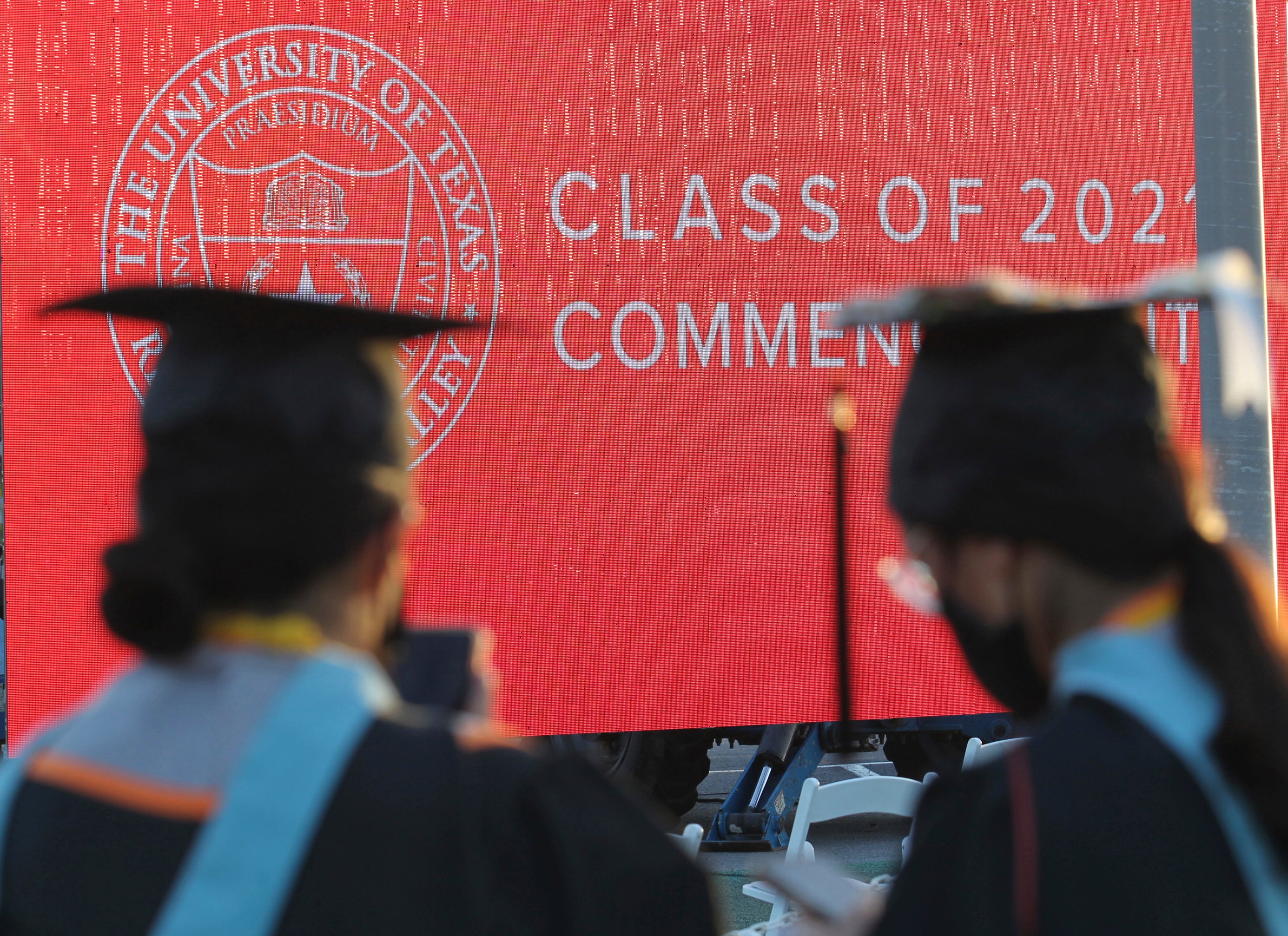What to know about public service loan forgiveness
More than 145,000 U.S. borrowers have had the remainder of their student loan debt canceled through the Public Service Loan Forgiveness program, and officials say many more likely qualify

More than 145,000 U.S. borrowers have had the remainder of their student loan debt canceled through the Public Service Loan Forgiveness program, and officials say many more likely qualify.
The program, launched in 2007 to steer more graduates to public service, cancels student debt after 10 years of public interest work, or 120 payments. Teachers, librarians, nurses, public interest lawyers, military members and other public workers can all apply.
The U.S. Department of Education has relaxed the complex rules for applying for the program, but only until Oct. 31. Here’s what you need to know if you want to apply:
WHO QUALIFIES?
If you are or were previously employed at least 30 hours per week with the following types of organizations, you qualify:
— Government organizations at any level (U.S. federal, state, local, or tribal). This includes the U.S. military, all work in public education, and full-time volunteer work with AmeriCorps and the Peace Corps.
— Any not-for-profit organization that is tax-exempt under Section 501(c)(3) of the Internal Revenue Code.
— If you work for a not-for-profit organization that is not tax-exempt, you may still qualify for PSLF if the organization provides certain types of qualifying public services such as emergency management, legal aid and legal services, early childhood education, service to individuals with disabilities or the elderly, public health, including nurses and nurse practitioners, public library and school library services, and public safety such as crime prevention and law enforcement.
To demonstrate that your job in public service qualifies you for forgiveness, you’ll file an employer certification form with your servicer, listing jobs you’ve held.
You must have direct loans or consolidate other federal student loans into a direct loan. You must also make 120 qualifying payments or 10 years of payments.
You can apply before you have made 120 payments, and the Education Department encourages anyone who qualifies for the program to apply before the waiver period ends on Oct. 31, no matter how many payments have been made.
WHICH STUDENT LOANS ARE ELIGIBLE?
Any federal student loan received under the William D. Ford Federal Direct Loan program is eligible.
If you have either a Federal Family Education Loan (FFEL) or a Federal Perkins Loan, you’ll need to consolidate those into direct loans with your servicer.
Private student loans are not eligible.
HOW CAN I APPLY?
You must submit an application by Oct. 31. You can still apply after that, but the waived rules only apply until then.
HOW CAN I CONSOLIDATE MY DEBT INTO A DIRECT LOAN?
First, visit studentaid.gov to see if you have loans made under the Federal Family Education Loan or Perkins Loan Program. Those are the loans you’ll consolidate.
Next, apply online or by mail or fax with FedLoan Servicing. The process is free and takes about six weeks to complete, but you can submit the Public Service Loan Forgiveness form before or after consolidation is complete.
WHAT COUNTS AS A QUALIFYING PAYMENT?
A qualifying monthly payment is a payment that you made after Oct. 1, 2007, while you were employed by a qualifying employer.
Any months of paused payments during the pandemic count toward the payment total.
Forbearance periods of 12 consecutive months or greater, or 36 cumulative months or greater, count under the waiver.
Months spent in deferment before 2013 count under the waiver.
Additionally, the Education Department will include economic hardship deferment on or after Jan. 1, 2013.
The 120 qualifying monthly payments don’t need to be consecutive. For example, if you have a period of employment with a non-qualifying employer, you will not lose credit for prior qualifying payments.
HOW CAN I APPLY FOR THE LIMITED WAIVER PROGRAM?
There is no separate application process for the waiver program. The waiver’s exceptions will be active for applicants that go through the process up to the end of October.
HOW MANY PEOPLE ARE CURRENTLY IN THE PROGRAM?
As of May of this year, 715,675 people have had completed forms processed for the program. According to the Education Department, 61.9% of borrowers work in the government, while the rest work at non-profits. The average amount of debt forgiven through the program is $64,968.
WHO CAN I CONTACT IF I HAVE QUESTIONS?
If you have a specific question about your application, it’s best to call or email a representative.
For general questions about student loans, the Federal Student Aid Information Center (FSAIC) hosts a contact center that allows borrowers to live chat, call or email.
For specific questions about the program, applicants can contact FedLoan Servicing at 1-855-265-4038.
The Student Borrower Protection Center has compiled a list of resources available in every state around the country.
WHERE CAN I FIND MORE INFORMATION?
Government agencies and private organizations are currently hosting several events online and in-person to help applicants successfully go through the program.
The Public Service Loan Forgiveness coalition hosts a webinar about the frequently asked questions about the program on the first week of every month. Applicants can also access past webinars on the coalition’s website.
AccessLex Institute hosts the webinar “How to Benefit from the Public Service Loan Forgiveness Limited Waiver Opportunity” a couple of times every month. The 30-minute sessions walk applicants through the process and address frequent questions. This event is free.
The National Education Association’s YouTube has a couple of PSLF webinars that tackle how to apply to the program and common questions.
___
The Associated Press receives support from Charles Schwab Foundation for educational and explanatory reporting to improve financial literacy. The independent foundation is separate from Charles Schwab and Co. Inc. The AP is solely responsible for its journalism.